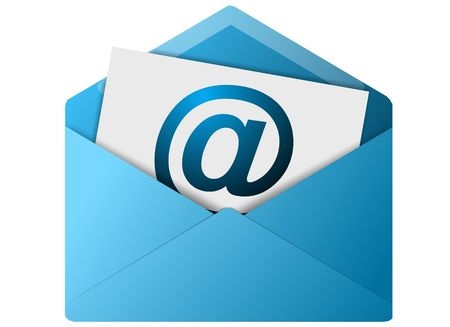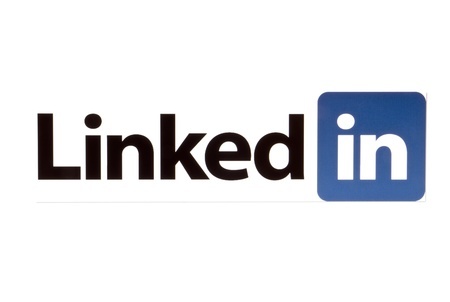5 Reasons Why You Didn’t Get The Job
Even if we don’t want the job, most of us want to get the offer. When you actually do want the job, getting a “pass” can be downright devastating. I’ve been there too.
Sometimes knowing the reason, you weren’t hired is easy. Maybe you didn’t have most of the “requirements” but you decided to apply anyway. Perhaps you didn’t click with the hiring manager. As soon as you left the interview your gut told you that you wouldn’t be moving forward.
Other times, you leave an interview feeling great and are stunned to receive a “we went another way” letter in the mail. You go over every interaction over and over trying to figure out what went wrong.
How To Establish Yourself As A Thought Leader
A tight job market means tougher competition. People who hadn’t considered moving a couple of years ago are passively looking. Those casually looking have transitioned from passive to active job seekers.
Today, standing out from your competition is essential.
If you’re a senior executive or pursing those roles, one of the best strategies is to have others see you as an authority in your industry, a thought leader.
One way to be recognized as a thought leader is to share knowledge with your community.
Don’t Rely On Job Boards To Find A Job (Do This Instead)
Job boards are not the holy grail. Yes, applying online should be part of your job search strategy. The operative word being “part.”
One of the biggest mistakes job seekers make is relying on online job postings to find a job.
It’s easy to fall into the trap of spending your day at the computer responding to job postings. It doesn’t take a lot of effort. You can do it at home wearing sweat pants and a t-shirt while watching TV.
At the end of the day, knowing you’ve applied to 30 jobs, gives you a sense of accomplishment. But, it’s a false sense of accomplishment.
The truth is, focusing on job boards isn’t the best use of your time.
It’s more effective to take a strategic, multipronged approach.
Target Employers
At the beginning of your job search make a list of 10 or so companies you’d like to work for. These are your Target Employers. Contact people in your network to see who can connect you with someone who works there. If the employee you connect with can get your resume in front of the hiring manager for your target position even better.
Set up Google alerts for each employer, that way you’ll be notified whenever they are in the news. Review the career section or job postings on their corporate websites, at least once a week.
As a former recruiter, I can say that almost every job I was trying to fill was listed on the company’s site. The only exceptions were “confidential” searches, generally when someone didn’t know they were being replaced.
How To Write A Compelling Cover Letter – And Why You Need One
Today, there’s a lot of debate as to whether it’s worth it to submit a cover letter with your resume. Some recruiters and hiring managers say they never read cover letters. Others say a candidate’s cover letter can mean the difference between being contacted for an interview and not.
So when you submit your resume sending a cover letter may or may not make a difference.
But in a competitive job market do you really want to take a chance?
Probably not.
Recruiters who say they never read cover letters say that a good resume should stand on its own. That a cover letter is redundant. However, a compelling cover letter can convince recruiters who do read them that you are a viable candidate.
How To Get A Response To Your Email
There are mixed opinions about cover letters. Some recruiters say a solid cover letter can move them to contact a candidate. Others say they never read cover letters.
Since you don’t know what a recruiter might do, the best bet is to always send one.
Thank you notes are different. The majority (80%) of hiring managers say a candidate’s thank you note is helpful with 22% saying very helpful and 58% saying somewhat helpful according to a 2017 survey by Accountemps.
So, it seems that sending thank you notes is a must. Despite that HR managers report that only 24% of candidates send them.
Just as with a resume, content is KING in your cover letters and thank you notes. You need to demonstrate your value as it relates to the employer. In essence, what you can do for them.
But it’s important to pay attention to the little things too.
Tell Recruiters You’re Looking (Without Your Boss Finding Out)
While being employed makes you more appealing to employers, looking for a new job while working full-time can be challenging. Perhaps the biggest challenge is keeping your job search a secret from your boss.
There’s a new LinkedIn program that can help with that.
LinkedIn recently introduced a new program for job seekers that makes looking for a job on LinkedIn easier. With this new program, you can alert recruiters that you’re open to new opportunities without broadcasting it to the world.
This new program takes only a few minutes to set up on your LinkedIn account.
The bonus is it’s free.
To begin go to Settings & Privacy, scroll down to Job Seeking Preferences, and turn on Let recruiters know you’re open to opportunities.
What To Do When You Don’t Get The Job
It’s always disappointing when you don’t get the job. It can be devastating when it was your “dream job” and you were one of the final two.
But, the fact is that there are at dozens of people applying for every position and only one of them gets hired.
If you’re not the one hired it’s OK to be upset. It’s OK to get angry. It’s even OK to cry if you want to. I’ve cried after finding out I came in number 2.
Give yourself permission and time to grieve. Then move forward. Here are a few steps to take.
How To Increase Your Chances That Recruiters Will Contact You
If you’ve been looking for a new job for more than 5 minutes, you’ve heard that you need to target employers. Most often, the advice is to develop a list of target employers, i.e. the employers you would most like to work for. Then, find a way to network your way in.
This strategy is recommended for a few reasons.
First, the best way to hear about jobs is by regularly checking the career section of your target’s website and/or knowing someone who works there. As a former recruiter, I can say that the only reason that businesses don’t post open positions is when the person doesn’t know they are being replaced.
Second, a resume given directly to someone at a company is more effective than responding to an ad on a job board. This can also be incredibly helpful if done after you respond to an online ad.
FYI, if a recruiter contacts you about an open position where you have a connection be sure to mention it. They may ask you to reach out to your connection to help grease the wheels.
How To Get Moving In 2019
It’s 2019.
Are you ready?
A lot of people casually looking for new jobs, put their job search into high gear in January.
The holidays are over. They’ve taken vacation and gotten year end bonuses.
If you want to find a new job this year, it’s time to get moving.
Time to do all those things you planned to do in the last few months of 2018.
Get Your Tools Together
First, make sure you resume is recruiter and hiring manager ready. Your resume is your calling card so make sure that it is a compelling marketing document not the boring list of duties you used 5 years ago.
A boring employment history is not going to impress anyone. Employers want to know how you can solve their problems, you resume should clearly demonstrate your value in modern, easy-to-scan format. And if you’re a senior executive, don’t forget to show momentum.
Next, finish completing your LinkedIn profile so recruiters can find you. Finish that that summary you’ve been meaning to for the last 4 months. Now that LinkedIn has changed their user interface, pay particular attention to the first 240 characters in your summary. Write something that will encourage them to click “Show more.”
Don’t End Up At The Back Of The Pack In January
There are only a few weeks left to 2018. If you’re already looking or plan to start in the new year, there is no time to waste. Serious candidates are working a job search plan right now. If you’re taking time off to enjoy the holidays, you’re falling behind. Here are a few ways to catch up.
Target Employers
First, create a list of target employers. These are your dream employers, the places you would work if you could work anywhere. Ten is a good place to start. Learn all you can about them.
Make a note to visit their website periodically to check job openings. As a recruiter, it was rare to source a job that was not listed on the company website. The exception being a confidential search when the person didn’t know they were being replace.










